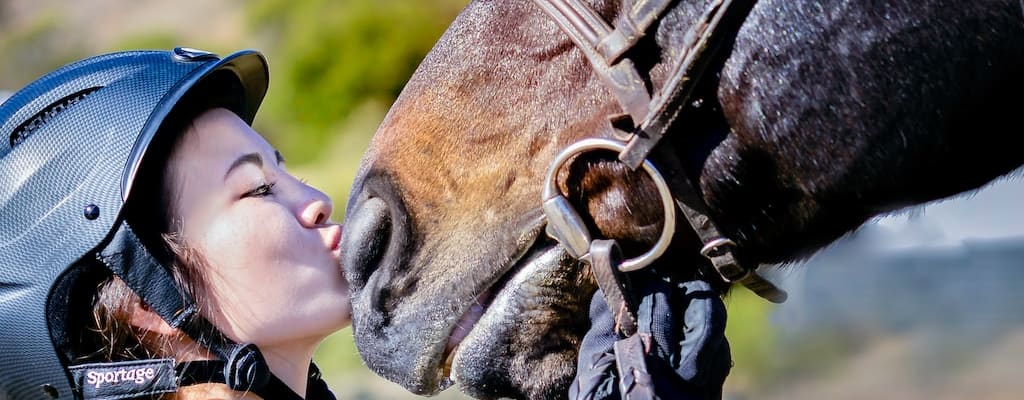one’s back is up: Idiom Meaning and Origin
What does ‘one's back is up’ mean?
When someone's back is up, it means they are feeling defensive or ready for a fight.

Idiom Explorer
"Turtle up" means to withdraw or retreat into a defensive position, like a turtle retracting into its shell, typically in response to a perceived threat or danger.
The idiom "row back" means to retract or reverse a previous decision, statement, or action.
An idiom often used to describe a person who is disliked or considered bad, with negative qualities or behavior.
The idiom "roar back" means to make a strong, energetic comeback after a period of setback or decline.
"Return to form" means a person or thing has regained their previous high level of performance or quality, often after a period of decline or inconsistency.
The idiom "rest easy" means to feel calm, relaxed, and free from worry or anxiety. It implies a sense of trust or confidence that everything is under control and there is no immediate cause for concern.
The idiom "rear one's head" means to appear or become evident after a period of inactivity or hiding.
The idiom "ready up" means to prepare or get ready for a particular task or event. It implies taking action to be fully prepared and organized.
When someone is quick on their feet, it means they are able to think and react quickly, especially in unexpected or difficult situations.
In the idiom *put up one's dukes*, "dukes" refers to fists. It means to prepare oneself for a fight or confrontation.
Surprising Derivation
The idiom "one's back is up" is an expression commonly used in English to describe someone who is angry, defensive, or on guard. It can be traced back to the behavior of animals, particularly those with fur or hair. When an animal feels threatened or senses danger, it instinctively raises its back and the hair on its body stands up as a protective mechanism. This defensive posture visually conveys a sense of readiness to defend oneself or confront a perceived threat.
The idiom "one's back is up" can also be used metaphorically to describe a human response to a perceived threat or challenge. When someone's back is up, it suggests that they are prepared to defend their position, beliefs, or interests. This can manifest in various ways, such as displaying signs of aggression, becoming defensive, or expressing anger.
One related idiom is "have one's back up." This idiom is used to describe a state of defensiveness or readiness to confront a perceived threat. It conveys the idea that someone has taken a defensive stance or is prepared to defend themselves. When someone has their back up, it often indicates that they feel strongly about a particular issue or are emotionally invested in a situation. It can be seen as a protective instinct, similar to the physical raising of an animal's back.
Another related idiom is "get someone's back up." This idiom is used to describe the action of provoking or irritating someone, causing them to become defensive or angry. When someone gets another person's back up, they have managed to elicit a defensive reaction or provoke them in some way. This can happen through criticism, challenges to their ideas or beliefs, or any other action that triggers a defensive response.
The idiom "one's back is up" and its related idioms, "have one's back up" and "get someone's back up," all share a common theme of defensiveness and readiness to confront a perceived threat. Whether it be the physical raising of an animal's back or the metaphorical stance of a human, these idioms illustrate our instinctive response to protect ourselves when we feel threatened. It is a natural reaction that can be observed in both animals and humans, and the idioms serve as a way to describe and understand this behavior.
The usage of these idioms is common in everyday language, both in informal and formal contexts. They are often employed to describe situations where someone is feeling threatened, provoked, or challenged. For example, if someone criticizes or challenges someone's ideas, they might say "his back is up" to indicate that he is becoming defensive or angry. Similarly, if someone deliberately provokes another person and causes them to become defensive, it can be said that they "got their back up."
It is important to note that the idiom "one's back is up" and its related idioms are figurative expressions, not meant to be taken literally. They are used to convey a state of emotional readiness or defensiveness, rather than a physical action. These idioms add depth and richness to the English language and allow speakers to communicate complex emotions and reactions in a concise and relatable manner.
The idiom "one's back is up" is an expression used to describe someone who is angry, defensive, or on guard. It draws from the behavior of animals and has been adapted metaphorically to describe a human response to a perceived threat or challenge. The related idioms, "have one's back up" and "get someone's back up," further illustrate the theme of defensiveness and readiness to confront a perceived threat. These idioms are widely used in everyday language and serve as a way to communicate complex emotions and reactions in a concise and relatable manner.
Example usage
Examples of how the idiom "one's back is up" can be used in a sentence are as follows:
1. After being accused of stealing, John's back was up and he fiercely defended his innocence.
2. The team's back was up after losing the first game of the season, so they were determined to win the next match.
3. Mary's back is always up whenever someone criticizes her work, and she becomes defensive.
More "Animals" idioms



